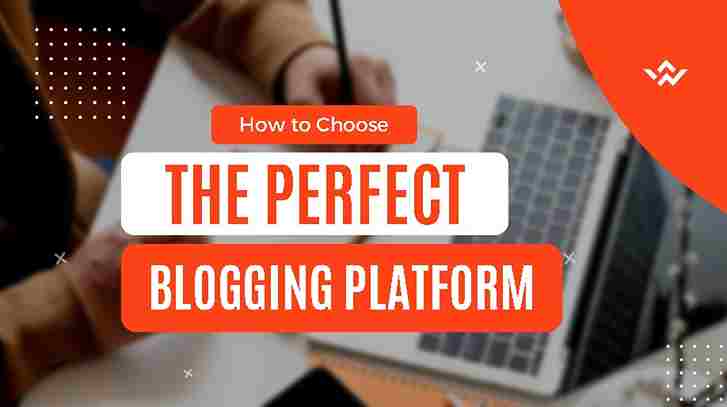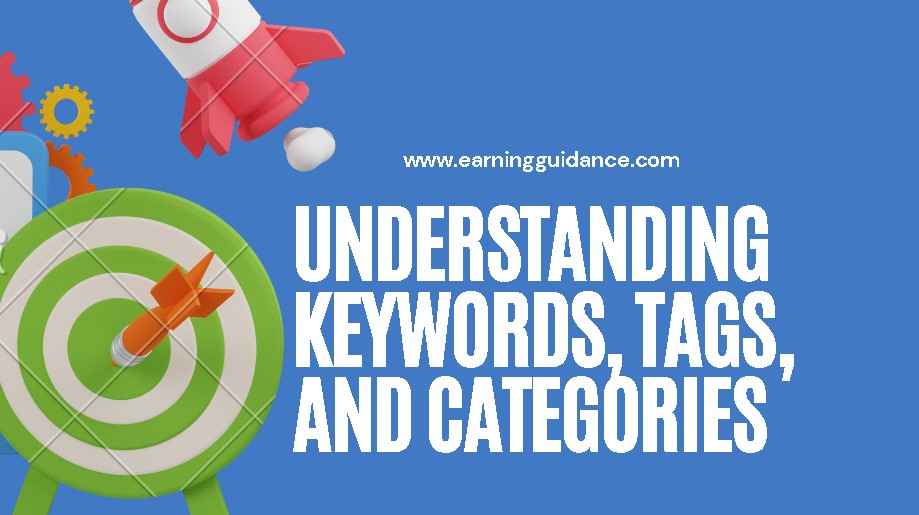Table Of Contents
Introduction
When it comes to starting a blog, one of the first decisions you need to make is to Choose the Perfect Blogging Platform. With numerous options available, it’s important to consider various factors to ensure you make an informed decision. This article will guide you through the process of selecting the perfect blogging platform that aligns with your needs and goals.
Understanding Different Blogging Platforms
Choosing the right blogging platform is crucial for the success of your blog. When it comes to starting a blog, one of the first decisions you need to make is to Choose the Perfect Blogging Platform. There are several popular platforms available, each with its own set of features and functionalities. Understanding the different blogging platforms will help you make an informed decision. Let’s explore some of the most common platforms:
- WordPress:
- WordPress.org: This is the self-hosted version of WordPress, offering complete control and flexibility over your blog. It requires you to have your own domain and web hosting.
- WordPress.com: This is the hosted version of WordPress, where WordPress takes care of the hosting and domain for you.
- Blogger:
- Blogger is a free blogging platform by Google. It is known for its simplicity and ease of use, making it ideal for beginners.
- Wix:
- Wix is a website builder that also offers blogging functionality. It provides an intuitive drag-and-drop editor and a range of templates to choose from.
- Medium:
- Medium is a popular publishing platform that focuses on the content and provides a built-in audience. It allows users to write and publish their articles within the Medium ecosystem.
- Squarespace:
- Squarespace is a website builder that includes blogging capabilities. It offers visually appealing templates and a user-friendly interface.
- Ghost:
- Ghost is a minimalistic and open-source blogging platform. It is known for its simplicity, speed, and focus on writing.
- Tumblr:
- Tumblr is a microblogging platform that combines blogging with social networking features. It is popular for sharing short-form content, images, and multimedia.
- Weebly:
- Weebly is a website builder that includes blogging functionality. It offers a drag-and-drop editor and a variety of templates.
- Joomla:
- Joomla is a content management system (CMS) that can be used for blogging. It provides advanced customization options and a range of extensions.
- Drupal:
- Drupal is another CMS that offers blogging capabilities. It is known for its scalability and flexibility, making it suitable for large and complex websites.
Each platform has its own strengths and weaknesses, so it’s important to consider your specific needs and goals when choosing a blogging platform. Take into account factors such as ease of use, customization options, SEO capabilities, hosting requirements, and community support. By understanding the different blogging platforms, you can make an informed decision that aligns with your blogging aspirations.
10 Essential Blogging Tips for Quick and Easy Ranking
Assessing Your Needs and Goals
Before selecting a blogging platform, it’s essential to assess your specific needs and goals. Consider the following factors:
- Blogging Goals: Identify the purpose of your blog, whether it’s personal expression, building an online presence, or promoting a business.
- Technical Skills: Evaluate your technical skills and comfort level with technology to determine the level of complexity you can handle.
- Scalability and Customization: Assess the scalability and customization options required for your blog’s growth and branding.
Key Considerations for Choosing a Blogging Platform
When choosing a blogging platform, there are several key considerations to keep in mind. These factors will play a significant role in your blogging experience:
- User-friendliness and ease of use: Look for a platform that offers a straightforward interface and intuitive navigation.
- Customization options and flexibility: Ensure the platform provides the design and customization features you need to create a unique blog.
- SEO capabilities and optimization features: Opt for a platform that offers built-in SEO tools or allows for easy integration with SEO plugins.
- Integration with third-party tools and plugins: Check if the platform supports integration with essential tools and plugins for added functionality.
- Available templates and design options: Explore the selection of templates and design options to find a style that matches your blog’s aesthetic.
- Hosting and domain options: Consider whether the platform provides hosting and domain services or if you need to manage them separately.
- Support and community resources: Check if the platform offers reliable customer support and an active community for assistance.
This link leads to an article on WPBeginner, a reputable resource for WordPress tutorials. It provides a comprehensive guide on how to choose the best blogging platform, covering various factors to consider.
Comparing Popular Blogging Platforms
When it comes to choosing a blogging platform, there are several popular options available. Let’s compare some of the most widely used platforms to help you make an informed decision:
- WordPress:
- Pros:
- Offers unparalleled customization options and flexibility.
- Huge selection of themes and plugins for enhanced functionality.
- Strong SEO capabilities and optimization features.
- Active community support and extensive documentation.
- Cons:
- Requires self-hosting, which involves technical setup and maintenance.
- May have a steeper learning curve for beginners.
- Certain features may require additional paid plugins.
- Pros:
- Blogger:
- Pros:
- User-friendly interface, suitable for beginners.
- Seamless integration with other Google services.
- Free hosting and domain options.
- Simple setup and management process.
- Cons:
- Limited design and customization options compared to other platforms.
- Relatively fewer plugins and extensions available.
- Not as scalable or flexible for advanced customization.
- Pros:
- Wix:
- Pros:
- Intuitive drag-and-drop editor for easy website and blog creation.
- Visually appealing templates with responsive design.
- All-in-one platform, including hosting and domain services.
- Excellent customer support and user-friendly interface.
- Cons:
- Limited scalability and customization options compared to WordPress.
- Less flexibility in terms of advanced customization and coding.
- SEO capabilities may not be as robust as dedicated blogging platforms.
- Pros:
- Medium:
- Pros:
- Focuses on content creation and distribution.
- Built-in audience and potential for wider exposure.
- User-friendly interface and simple setup process.
- Allows for easy collaboration and interaction with other writers.
- Cons:
- Limited customization options and design flexibility.
- Less control over the platform and branding.
- Monetization options may be more restricted compared to self-hosted platforms.
- Pros:
- Squarespace:
- Pros:
- Beautifully designed templates with a modern aesthetic.
- Integrated e-commerce capabilities for selling products.
- All-in-one platform with hosting and domain services.
- User-friendly interface and intuitive website builder.
- Cons:
- Limited flexibility and customization options compared to WordPress.
- May not be ideal for content-heavy blogs.
- Pricing plans can be relatively higher compared to other platforms.
- Pros:
Remember, the choice of a blogging platform ultimately depends on your specific needs, technical skills, and long-term goals for your blog. Consider these comparisons and weigh the pros and cons to select the platform that aligns best with your requirements.
First Site Guide offers a detailed article on how to choose the best blogging platform. It provides insights into different platforms, their features, and important considerations to help you make an informed decision.
Case Studies and Examples
Examining real-life examples of successful blogs can provide valuable insights into how the choice of a blogging platform impacts their success. Consider the following case studies:
- Example Blog – This blog achieved significant growth and engagement using the WordPress platform, leveraging its extensive plugin options and SEO capabilities.
- Success Story Blog – Blogger played a crucial role in this blog’s success due to its user-friendly interface and seamless integration with Google services.
- Creative Inspiration Blog – Wix’s visually appealing templates and easy customization allowed this blog to showcase its creative content effectively.
By examining these case studies, you can draw insights and lessons that will help inform your platform selection.
Migration and Switching Platforms
Sometimes, you may need to switch platforms or migrate your blog to a different one. Here are a few important factors to consider during this process:
- Understand the steps involved in migrating from one platform to another.
- Ensure proper backup of your content and data to avoid any loss during the transition.
- Carefully review the design and customization options of the new platform to ensure a seamless transition.
- Test the new platform before fully committing to it, ensuring it meets your requirements.
FAQs
Q: How do I choose between a self-hosted and a hosted platform? A: Consider your technical skills, budget, and desired level of control. Self-hosted platforms offer more flexibility but require technical management, while hosted platforms provide convenience and support.
Q: Can I change my blogging platform later if needed? A: Yes, it’s possible to switch platforms. However, it may involve some technical work, such as content migration and domain mapping. Plan and execute the switch carefully to minimize disruptions.
Q: Are there any free blogging platforms available? A: Yes, platforms like WordPress.com, Blogger, and Medium offer free plans with basic features. Keep in mind that free plans may have limitations compared to paid options.
Q: Which platform is better for monetizing my blog? A: WordPress.org is often preferred for monetization due to its extensive plugin options, flexibility, and control over advertising and revenue streams.
Q: What are the essential features to look for in a blogging platform? A: Essential features include customization options, SEO capabilities, responsive design, user-friendly interface, support for media types (images, videos), and integration with social media.
Conclusion
Choosing the perfect blogging platform is crucial for your blogging journey. By considering factors such as user-friendliness, customization options, SEO capabilities, and community support, you can make an informed decision. Remember to align the platform with your goals and needs to ensure a successful and enjoyable blogging experience.













2 thoughts on “How to Choose the Perfect Blogging Platform for Your Needs”